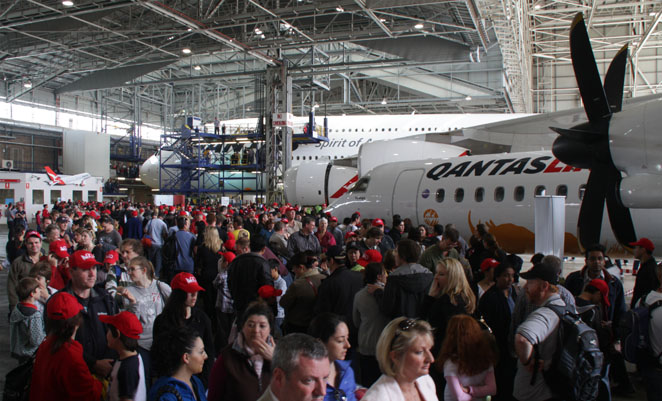
Qantas chief financial officer Gareth Evans says unions and staff have understood the enormity of the challenge facing the airline as it seeks to return to profitability.
The Flying Kangaroo is partway through a multi billion dollar cost reduction program as it retires older aircraft, tweaks its network and sheds 5,000 jobs.
Even the unions representing a Qantas staff, some of which have had a prickly relationship with the airline’s management in recent times, seem to be on board, Evans said.
“Everybody in the organisation knows there’s a requirement to change,” Evans told the CAPA Australia Pacific aviation summit in Sydney on Thursday.
“And therefore resistance, passive resistance, pro-active resistance to that change that may have been there in the past for various reasons isn’t there to anything like the same degree here.
“We are seeing a significant degree of collaboration because people do understand the necessity of what we are trying to achieve.”
Evans said 2,200 staff have been made redundant since the transformation program was announced in February.
“The way that our staff have understood, grabbed hold of the implications of the challenges that we face and the change that we are trying too implement has been nothing short of extraordinary,” Evans said.
“The employees at Qantas have a tremendous passion for the organisation.”
Proof of the staff engagement has come in the form of record customer satisfaction, and on-time performance during this period of change, Evans said.
Qantas was due to report its full year financial results on August 28, with the airline forecast to post a loss of about $700 according to market consensus.
The cost-saving program comes as Qantas and Virgin Australia have been engaged in a battle for business travellers in the domestic market.
While both airline groups – Qantas and Jetstar on one side and Virgin Australia and Tigerair on the other – appear to have pulled back from the huge capacity increase of 2013, Evans said domestic demand was still a bit sluggish.
“There has been excess capacity there is no doubt about that and what we are seeing is an abatement of that capacity growth,” he said.
“The demand environment is still quite weak.”
Over the last two and a half years, Evans said the Qantas group had added about 0.95 of a seat into the domestic market for every one seat that Virgin and Tigerair had added.
Qantas has flagged zero capacity growth over the three months to September.
Meanwhile, on the international front, Evans foreshadowed a more benign operating environment in Australia, given there was limited capacity growth forecast for the year ahead. He noted that there was 46 per cent growth in international capacity into and out of Australia over the past four years, compared with about 20 per cent for the global average.
By contrast, the growth this year had been closer to three or four per cent.
“That’s going to be good for everybody.”




